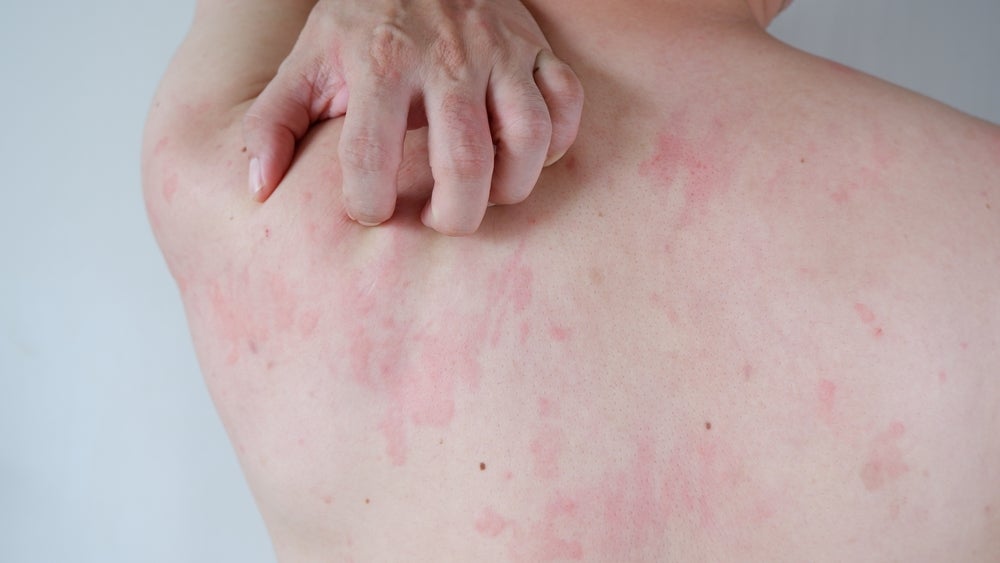Novartis prepares for FDA submission for its chronic hives treatment
09 Aug 2023
Phase 3Clinical Result

Preview
Source: Pharmaceutical Technology
Phalguni Deswal
@Phalguni_GD

Preview
Source: Pharmaceutical Technology
Remibrutinib started showing improvement in disease activity after 2 weeks of therapy. Image Credit: wisely / Shutterstock.
Novartis has announced that the two Phase III trials for remibrutinib have demonstrated clinical efficacy and met their primary endpoints in patients with chronic spontaneous urticaria.
Chronic spontaneous urticaria, also known as chronic hives, is a skin condition of unknown cause that causes red, raised, and itchy hives that are occasionally painful. These hives last for six weeks or more. As per Allergy UK, chronic spontaneous urticaria is not caused by allergens but by an immune response, and is managed symptomatically with anti-histamines, antipruritic, and anti-inflammatories.
Recommended Reports

Preview
Source: Pharmaceutical Technology
ReportsHospital Acquired Methicillin-Resistant Staphylococcus aureus (HA-MRSA) Infections Drugs in Devel... GlobalData

Preview
Source: Pharmaceutical Technology
ReportsLOA and PTSR Model - Zinpentraxin Alfa in Post-Essential Thrombocythemia Myelofibrosis (Post-ET MF) GlobalData
View allCompanies IntelligenceNovartis AGSanofiAmgen IncAllakos IncCSU, INC.View all
Remibrutinib is a selective Bruton’s tyrosine kinase (BTK) inhibitor. It acts by stopping histamine release by blocking the BTK cascade. The release of histamine is responsible for chronic spontaneous urticaria symptoms such as itching, hives, and swelling.
Remibrutinib started showing improvement in disease activity after two weeks of therapy. It also reported a favourable safety profile in multiple conditions apart from chronic spontaneous urticaria, including multiple sclerosis, hidradenitis suppurativa, and food allergy.
“These positive top-line results from the Phase III REMIX studies confirm that remibrutinib, a highly selective BTK inhibitor, has the potential to be a first-in-class, oral treatment for people living with CSU whose symptoms are refractory despite the use of antihistamines,” said Shreeram Aradhye, chief medical officer of Novartis in a press release.
Additional one-year follow-up data is planned for presentation at scientific conferences in 2024. Furthermore, Novartis is planning to apply for regulatory submissions in 2024.
Sanofi’s monoclonal antibody, Dupixent (dupilumab) showed a 63% decline in the severity of itch in Phase III trials within the paediatric population (aged six years or older). Other drugs in development for chronic spontaneous urticaria include Amgen’s Tezepelumab, Allakos’ lirentelimab, and Celldex’s barzovolimab.
For more details,please visit the original website
The content of the article does not represent any opinions of Synapse and its affiliated companies. If there is any copyright infringement or error, please contact us, and we will deal with it within 24 hours.
Organizations
Indications
Targets
Chat with Hiro
Hot reports
Get started for free today!
Accelerate Strategic R&D decision making with Synapse, PatSnap’s AI-powered Connected Innovation Intelligence Platform Built for Life Sciences Professionals.
Start your data trial now!
Synapse data is also accessible to external entities via APIs or data packages. Empower better decisions with the latest in pharmaceutical intelligence.





